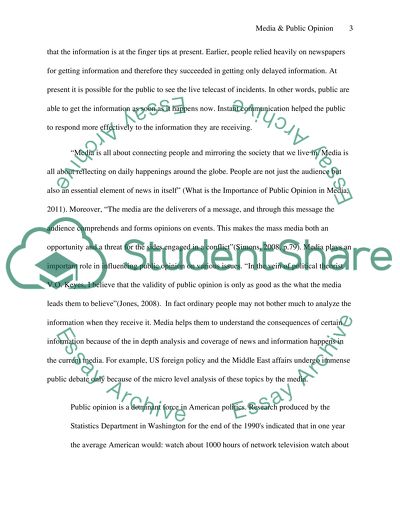Cite this document
(“Influence of media on public opinion and foreign policy formulation Essay”, n.d.)
Retrieved from https://studentshare.org/journalism-communication/1428100-influence-of-media-on-public-opinion-and-foreign-policy-formulation
Retrieved from https://studentshare.org/journalism-communication/1428100-influence-of-media-on-public-opinion-and-foreign-policy-formulation
(Influence of Media on Public Opinion and Foreign Policy Formulation Essay)
https://studentshare.org/journalism-communication/1428100-influence-of-media-on-public-opinion-and-foreign-policy-formulation.
https://studentshare.org/journalism-communication/1428100-influence-of-media-on-public-opinion-and-foreign-policy-formulation.
“Influence of Media on Public Opinion and Foreign Policy Formulation Essay”, n.d. https://studentshare.org/journalism-communication/1428100-influence-of-media-on-public-opinion-and-foreign-policy-formulation.


